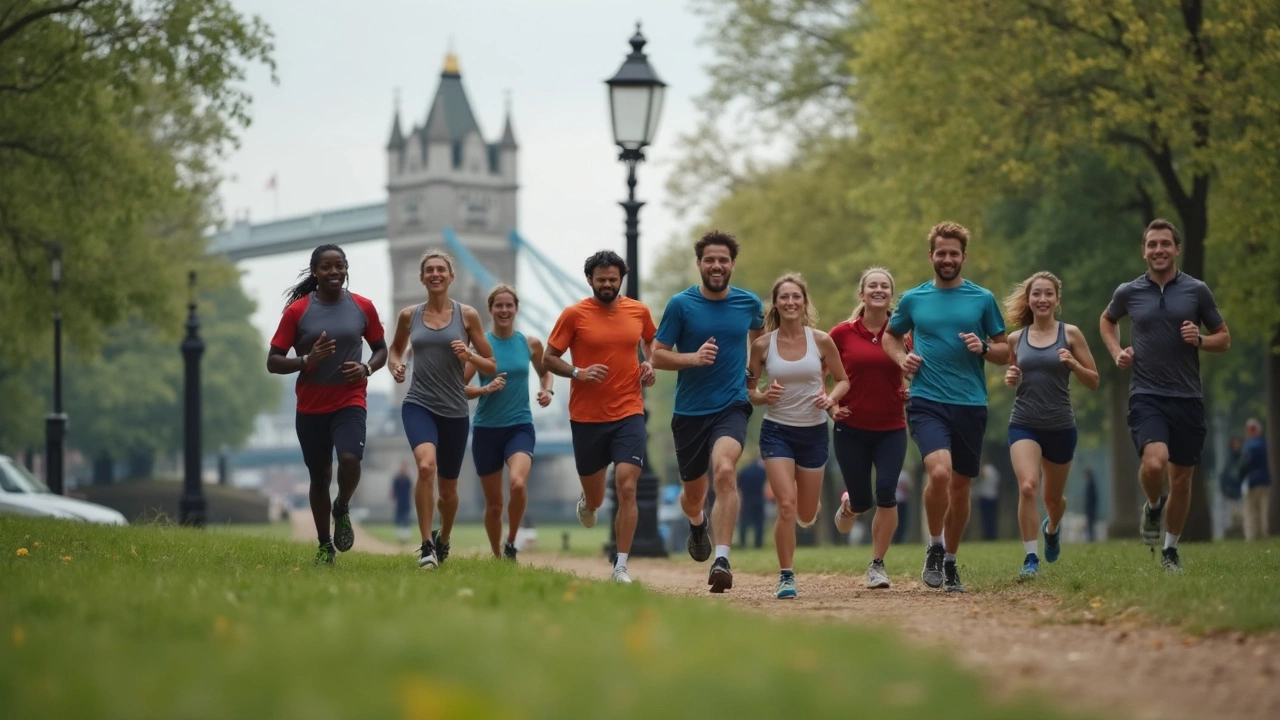5 Things You Need for Fitness Success

If you want to get fit but feel lost, you’re not alone. So many people jump in with good intentions but end up quitting because it feels too complicated or overwhelming. The truth? You only need five basic things to make fitness part of your life—and none of them involves fancy equipment or strict diets.
For starters, it’s not about doing everything perfectly. Sticking to a handful of key habits is what actually works. A walk with a friend, swapping soda for water, or writing down a simple goal can change your week more than you think. Even my cat Oliver doesn’t overcomplicate his routine—he just sticks to what works and takes lots of naps in between.
Let’s break down what really matters for lasting fitness, so you can get strong and feel good without all the confusion.
- Clear Goals That Motivate
- Smart, Simple Workouts
- Nutrition Without Stress
- Consistency Beats Perfection
Clear Goals That Motivate
People who set specific fitness goals are way more likely to stick with their routines. A 2022 study in the British Journal of Sports Medicine found that people using clear, written goals were up to 42% more consistent in keeping good exercise habits. It sounds simple, but writing something out like “I’ll walk 7,000 steps a day” or “do 15 push-ups three times a week” actually helps your brain stay focused. Vague goals like “get fit” get lost in the shuffle, but little targets you can measure give you something to aim for.
If you’re just starting out, don’t go wild. Here’s a super easy way to set fitness tips you’ll actually follow:
- Pick one goal. Maybe it’s walking, biking, or yoga twice a week.
- Make it specific—add numbers or times, like “Thursday after dinner walk around the park.”
- Write it down where you’ll see it: phone lock screen, fridge, bathroom mirror. Don’t rely on memory alone.
- Tell someone. Even if it’s your cat or your group chat, saying it out loud makes it real.
Check out how different goals can look in action:
| Vague Goal | Clear Goal |
|---|---|
| "Exercise more" | "20-min walk every weekday after work" |
| "Eat better" | "Swap soda for water at lunch" |
| "Get stronger" | "Do 10 push-ups before breakfast on Mondays and Fridays" |
Keeping it tiny means you’re not overwhelmed. Small wins boost your confidence and make you want to keep showing up. Start with just one tiny, crystal-clear target and you’ll feel a difference within a week.
Smart, Simple Workouts
When it comes to getting results, your workouts don’t need to be complicated. In fact, sticking with basic moves usually works best. Think squats, push-ups, planks, walking, or biking. You don’t need a pricey gym membership or fancy machines—your own body weight is enough to get started, and even a brisk walk around the block counts.
The Centers for Disease Control recommends at least 150 minutes of moderate-intensity exercise per week. That’s just over 20 minutes a day. It sounds totally doable when you break it down like that, right? Stack your habits—like doing a set of squats while your coffee’s brewing or always taking the stairs at work.
"Exercise doesn’t have to be extreme. Consistency with simple movements is much more effective than the occasional complicated routine." — Dr. Jordan Metzl, sports medicine physician (New York Times, 2023)
If you’re wondering what a basic routine looks like, here’s a quick template to get you started:
- Squats – great for legs and core
- Push-ups – hits arms, chest, and back
- Planks – builds a solid midsection
- Walking or biking – gets your heart rate up
- Stretching – keeps you flexible and avoiding stiffness
It doesn’t matter if you’re 18 or 48. Studies show even short bursts of movement can boost your energy and mood. According to a meta-analysis in 2022, just 10 minutes of physical activity can increase focus and lower stress levels for up to two hours afterwards.
| Workout Type | Calories Burned (30 mins) |
|---|---|
| Brisk Walking | 140 |
| Bodyweight Circuit | 160 |
| Bike (casual) | 170 |
| Stair Climbing | 180 |
The key is to move most days. If you keep workouts simple and regular, you’ll get stronger, feel better, and actually stick with it—not just for a month, but for life.

Nutrition Without Stress
Eating healthy gets hyped up as this big, complicated thing, but it doesn’t have to be stressful. You don’t need to obsess over calories, macros, or the latest superfood trend. Real power comes from the basics: eating real food, paying attention to your hunger, and making swaps you can stick with for the long haul.
Start with the simple stuff. Aim for a mix of protein, carbs, and healthy fats at most meals. A chicken and veggie stir-fry with brown rice? Perfect. Greek yogurt with fruit? Solid choice. Science shows that protein helps you stay full, carbs give you quick energy, and healthy fats like olive oil and avocado keep your body running smoothly.
Next, keep snacks handy so you’re not stuck with vending machine regrets. A banana and a handful of nuts does the job way better than a bag of chips. Planning out some basics makes life easier—a batch of hard-boiled eggs in your fridge, or apple slices ready to grab when you’re on the run, save both time and temptation.
Hydration is super important too. Swap just one soda or sugary drink each day for water, and you’ll start to feel the difference within a few weeks. Most people walk around a little dehydrated and don’t even realize it. Water impacts energy, mood, and how well you get through your fitness tips and workouts.
- Don’t forget treats. Balance is realistic. It’s not about cutting out pizza, ice cream, or a burger—just make those the sometimes foods, not the every-meal foods.
- Pay attention to portions. Try using smaller plates or bowls, which actually helps you eat less without feeling like you’re missing out.
- Listen to your body. Notice when you’re really hungry versus just bored or stressed. Sometimes the best “diet” move is just to pause and check in with yourself before grabbing a snack.
Eating well isn’t about rules or guilt—it’s about making some swaps you can actually live with. Keep it simple, cut yourself some slack, and focus on building habits that last.
Consistency Beats Perfection
It's so easy to fall into the trap of thinking you have to crush every workout and eat perfectly every day. Guess what? You don't. Progress comes from showing up regularly, not from being perfect. It’s what you do most of the time—not every single day—that adds up.
Harvard Health says,
"Exercise works best when it becomes a habit you stick with over the long haul, even if that means doing shorter or easier sessions some days."That means there’s zero need to guilt yourself over missing a workout. Just pick things up again the next day.
Here’s why consistency matters more than being flawless:
- Small habits repeated often make change stick. For example, walking 20 minutes daily turns into over 120 hours of movement a year.
- Your body adapts better to regular, repeated actions than to big bursts followed by long breaks.
- You build confidence by seeing yourself show up, even if it’s just for a quick stretch or a few push-ups.
Check out how quickly daily actions add up—this table says it all:
| Daily Activity | Total in a Year |
|---|---|
| 10,000 steps | ~3.65 million steps |
| 20-minute walk | Over 121 hours walking |
| 3 sets of squats | Over 1,000 sets |
Here’s the kicker: Most people quit because they aim for perfect, mess up a day or two, and throw in the towel. Aim to show up for yourself as much as you can—even on the blah days. Building a fitness tips routine that’s sustainable is way more powerful than one week of extremes.
